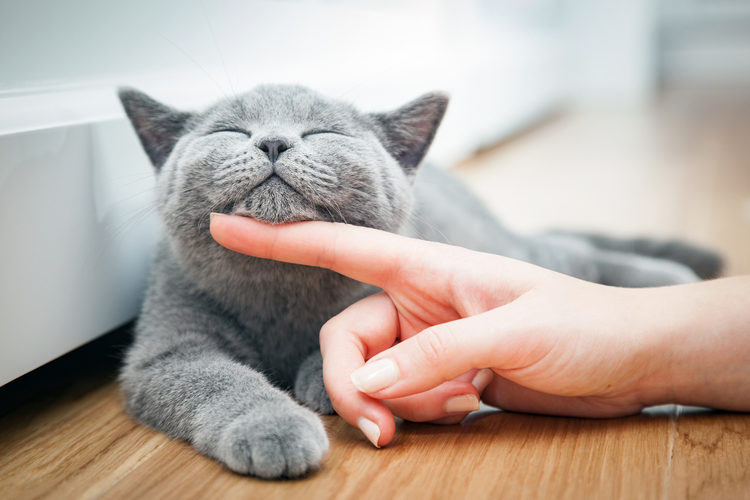Everyone who has a cat has heard the familiar sentiments: Cats don’t care about their human caretakers. They only stick around because we feed them. They’re indifferent and far less affectionate than dogs.
People who love cats have long known those stereotypes aren’t true, but now there are finally research studies to help prove it.
New research from Oregon State University confirms what cat people have known for a long time — that cats really are social animals, but they like social interaction on their own terms.
Cats “are sensitive to human social cues and tend to be more social when presented with an attentive human,” the study’s authors concluded. They reached that conclusion after studying two groups of cats: 23 pet cats, male and female, between the ages of two and 16, and 23 mixed-breed adult shelter cats.
On Home Turf
Because territory and surroundings are important factors in how cats react to situations, the researchers studied the pet cats in their own homes and the shelter cats in a small room.
Both groups were placed in a room with a stranger for the first part of the study, and the pet cats were later placed in a room with their familiar human owners. The human participants alternated between ignoring the cats and giving the furry ones their full attention.
Contrary to the popular memes, Youtube videos and stereotypes depicting kitties as cold, calculating “overlords”, the cats spent significantly more time interacting with humans when they granted cats their attention.
“In both groups, we found [cats] spent significantly more time with people who were paying attention to them than people who were ignoring them,” said Kristyn Vitale, a postdoctoral animal behavior researcher and lead author of the study.
Deprived of Human Attention, Kitties Seek It Out
Additionally the attention-starved shelter cats, who had been in the custody of the Heartland Humane Society in Corvallis, Ore., tried more than their pet counterparts to interact with humans who weren’t giving them attention.
The study wasn’t designed to answer why shelter cats were more persistent with inattentive humans, but Vitale speculated it could be because the shelter cats don’t get as much human attention as pet cats do. Some of the homeless cats had been in the shelter for as long as 455 days, according to the study.
 To people who aren’t familiar with the way cats behave that may seem like a small detail, but as cat owners can attest, allowing a cat to initiate interaction makes a world of difference. Cats are notorious control freaks and they’re much more likely to have a positive experience when they’re not forced into petting or playing.
To people who aren’t familiar with the way cats behave that may seem like a small detail, but as cat owners can attest, allowing a cat to initiate interaction makes a world of difference. Cats are notorious control freaks and they’re much more likely to have a positive experience when they’re not forced into petting or playing.
That’s why many cats don’t respond well to people who pick them up and cuddle them, but those same cats will happily nap on a human’s lap when it’s their choice.
“Even in the attentive phase, the cat had a lot of control, and that’s really what we think they like — the ability to leave,” Mikel Delgado, who studies cat behavior at the University of California’s School of Veterinary Medicine, told the Washington Post. “It’s not that they’re aloof. It’s just that they want choice.”
Cats: Not The Greatest Actors
To people who share their homes with these tiny lions, the study’s conclusions confirm typical cat behaviors. A cat may appear aloof, for example, but will follow her favorite human around the house, never straying more than a few feet.
Similarly, cats are notorious for giving their people the cold shoulder after the humans have been gone a long time from the cat’s perspective, whether it’s been a weekend getaway or a full two-week vacation. Like bad actors they can’t keep up the charade, but it doesn’t take them long to welcome their favorite people back into their good graces.
 Vitale’s name may be familiar to cat lovers as this is the same researcher whose 2017 study showed most cats will choose human company over food, toys and even catnip. Her research is helping to demystify the most mysterious domesticated animal and provide people with ways to understand what their furry friends are trying to communicate.
Vitale’s name may be familiar to cat lovers as this is the same researcher whose 2017 study showed most cats will choose human company over food, toys and even catnip. Her research is helping to demystify the most mysterious domesticated animal and provide people with ways to understand what their furry friends are trying to communicate.
“I’ve worked with cats a lot,” Vitale told the post in 2017 after the latter study. “It’s not surprising to me to see cats being social. I’ve never seen cats being unsocial.”






